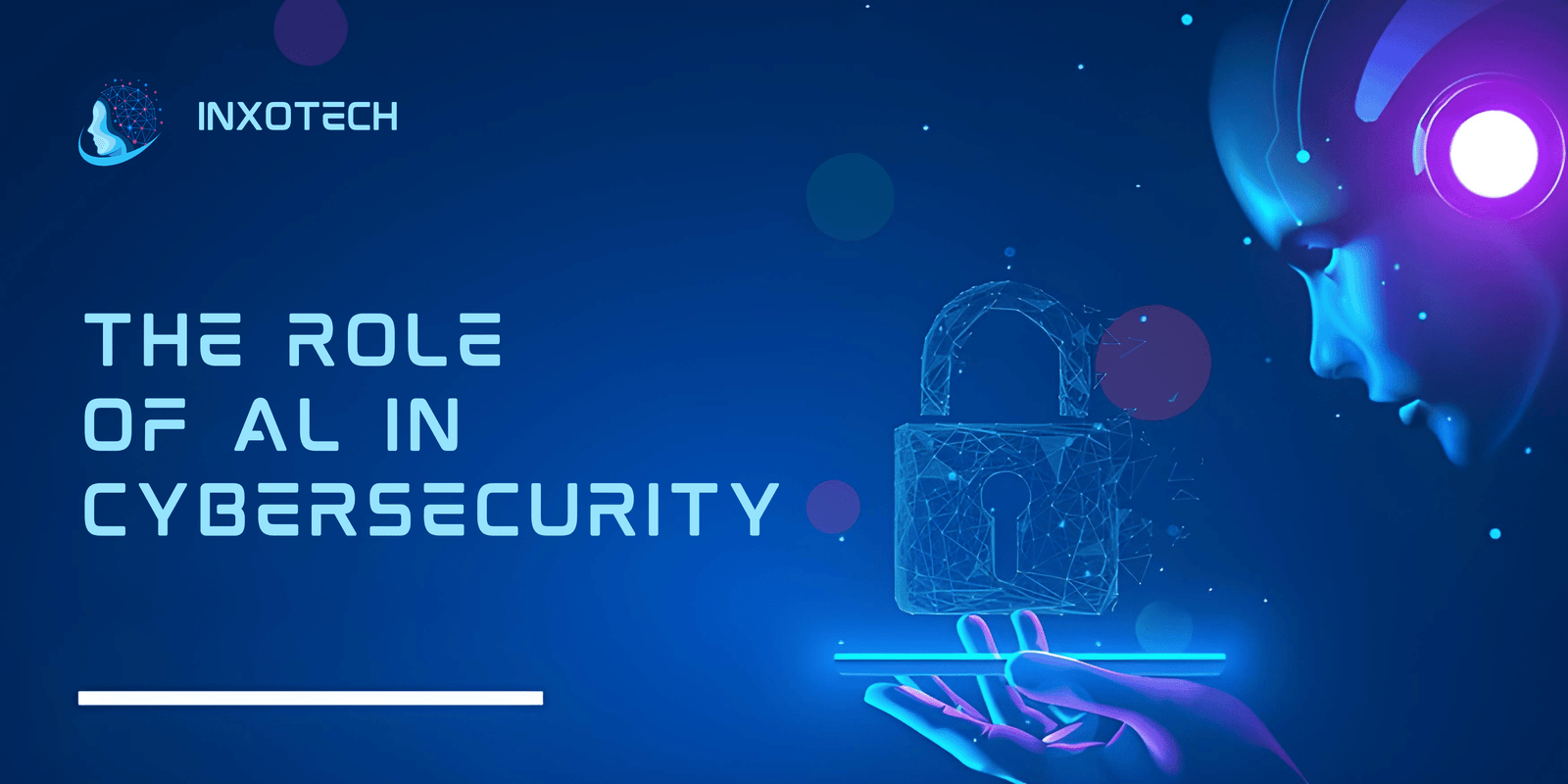Role of AI in Cybersecurity: Protecting Against Emerging Threats
Introduction:

Role of AI in Cybersecurity
As the world becomes increasingly digital, the number of cybersecurity threats is growing at an alarming rate. In 2021, it’s estimated that cybercrime will cost the world $6 trillion in damages, with a new attack occurring every 39 seconds. In this environment, protecting sensitive data is more critical than ever. One tool that is quickly becoming a crucial component of cybersecurity defenses is AI.
The Role of AI in Cybersecurity
The role of artificial intelligence (AI) in cybersecurity is indeed essential. In today’s global, while all people are online, cyberattacks also are on the rise. Moreover, with the assistance of AI, we will perceive, mitigate, and reply to ability threats immediately. Also, with its ability to fast and accurately analyze big quantities of data, AI allows for discovering threats and anomalies that human analysts may have ignored
Moreover, with the assistance of AI, we can fight contemporary and future threats better and quicker.
Additionally, AI also helps protect against cyber threats through natural language processing (NLP). This art provides us with insightful and reliable information about cyberattacks by collecting and analyzing detailed data. In the security sector in AI, we gain the ability to improve and improve our security measures. As a result, this art helps us protect ourselves in various ways, which is very important in today’s time. For example, AI recognizes possible wipe-out attempts and other social technologies.
The Role of AI in Cybersecurity: Protecting Against Emerging Threats:
AI performs a critical position in cybersecurity by way of using presenting machines that can carry out duties that generally require human intelligence, along with desire-making, speech recognition, item recognition, and translation of languages, and may be knowledgeable and guarded.
Using AI strategies which include deep mastering, device mastering, and Herbal language processing, groups can automate hazard detection and mitigation to become aware of and reply to the lots of cyber incidents they encounter every day to guard themselves, It additionally facilitates creating their steady consumer money owed, and detect anomalies and signs of malicious messages
AI-driven safety answers, together with User Entity Behavioral Analytics (UEBA), enable corporations to investigate tools and server consumer pastimes to help them discover bizarre or uncommon behavior that would imply an afternoon 0 attack.
AI also can hit a shield against vulnerabilities before organizations are formally notified and patched. AI-powered answers, which include FortiAI by Fortinet, can provide fast reactions to superior threats without delay stopping intercompany assaults from achieving company networks through their stumble on and classifying them in real-time
The Advantages of AI in Cybersecurity

The use of artificial intelligence (AI) gives large advantages in cyber security. It takes numerous measures that reduce the dangers of cyber-attacks and make the safety gadget extra robust. In this research article, we cannot forget the numerous blessings of AI in cyber security.
- Advanced Threat Detection: AI can have a look at huge quantities of facts quickly and as it must be, making it less complex for corporations to perceive and respond to threats in actual time
- Automated Threat Response: AI permits agencies to answer to cyber threats automatically, decreasing the time and assets required to respond.
- Predictive analytics: AI can assist in expecting destiny threats, permitting businesses to take proactive measures to store them.
- Cost financial savings: By automating many cybersecurity-related duties, AI can assist organizations in shopping for cash on employees and other sources.
- Scalability: AI can without problems scale to satisfy the needs of agencies of all sizes, making it a to-be-all answer for all kinds of businesses.
The Challenges of AI in Cybersecurity
While AI can substantially improve cybersecurity, there are also some challenges to don’t forget. These include:
- Data Privacy: AI calls for entry into huge amounts of statistics, which can boost concerns approximately information privacy and safety.
- Complexity: AI may be complicated and tough to implement and manipulate, requiring specialized abilities and expertise.
- Cost: While AI can assist companies to keep money, it can also be costly to implement and preserve.
The Future of AI in Cybersecurity
The use of AI in cybersecurity is still in its early degrees, but it’s far already having a great impact on the enterprise. As AI technology keeps developing, it is possibly to become an increasingly more important device for protecting against emerging threats.
One location where AI is in all likelihood to have a sizeable effect is in the subject of chance intelligence. By studying facts from a wide variety of assets, AI can help companies stay ahead of rising threats and respond to them greater quickly and correctly.
Another place wherein AI is possibly to have a big impact is within the field of incident reaction. With its capability to research massive amounts of information quickly and as it should be, AI can help businesses respond to incidents more quickly and efficiently, decreasing the time and resources needed to deal with them.
Conclusion
In today’s digital global, shielding in opposition to cyber threats is greater vital than ever. With its capacity to analyze tremendous amounts of records quickly and appropriately, AI is swiftly turning into a critical aspect of cybersecurity defenses. By imparting corporations with the equipment they need to live ahead of rising threats, AI can assist guards in opposition to cybercrime and maintain sensitive information secure.
FAQs
Q: What is AI and how is it used in cybersecurity?
A: Artificial intelligence, or AI, is a computer technology that acts like human intelligence. In cyber security, artificial intelligence is used especially to detect and master dangerous cyber attacks and malware. Through algorithms and machine learning techniques, computers automatically learn detect, and prevent cyber threats. This technology helps identify threats more quickly and effectively and maintain secure networks.
Q: What are the benefits of using AI in cybersecurity?
A: The benefits of using AI in cybersecurity include improved threat detection, automated threat response, predictive analysis, cost savings, and scalability.
Q: What are the challenges of using AI in cybersecurity?
A: The challenges of using AI in cybersecurity include data privacy, complexity, and cost.
Q: How is AI likely to impact the future of cybersecurity?
A: AI is likely to have a significant impact on the future of cybersecurity, particularly in the fields of threat intelligence and incident response.


